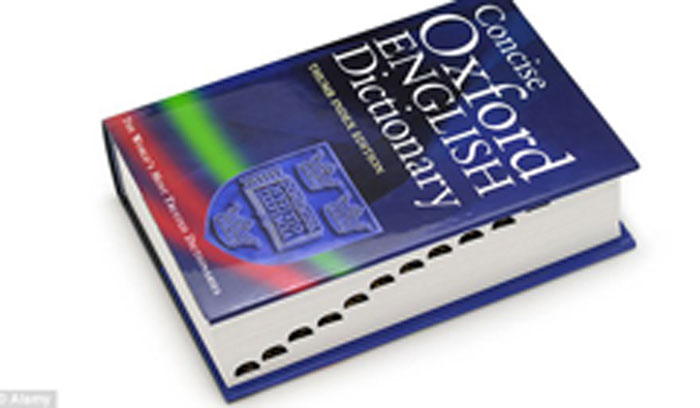`Mamil` (middle-aged man in Lycra), `silvertail` (a person who is socially prominent or who displays social aspirations) and `crony capitalism` are among the 1,000 new words to be added to oxforddictionaries.com, the free online dictionary, in its largest quarterly update so far.
The entries by editors at Oxford Dictionaries reflect the influence of popular culture, or teenspeak, and include abbreviations such as `IDC` (I don’t care) and `PMSL` (pissing myself laughing), The Guardian reported Thursday.
Words from gaming terminology include `respawn` (a character in a video game who reappears after dying) and `permadeath` (one who does not reappear).
OxfordDictionaries.com has extended its coverage of Australian English terms, a particularly rich source of slang.
In addition to silvertail, there is `shiny bum` (office worker), `ant’s pants` (an outstandingly good person or thing), and `sticker licker` (an issuer of parking fines).
“One of the special projects is more coverage of Australian words,” Angus Stevenson, head of content development at Oxford Dictionaries, said.
“We will put in a lot of Australian vocabulary over the next year, it’s so brilliant and lively.”
International cuisine — particularly Italian and Hispanic food — provides several debuts: `arancini` (stuffed balls of rice); `cappellacci` (stuffed hat-shaped pasta); `carne asada` (Mexican marinated beef typically served in strips or as a filling); and `guanciale` (a type of Italian cured pork).
Finance and business have contributed several entries such as `algorithmic trading` (automated stock exchange trading by computers); `challenger bank` (a relatively small retail bank competing with big lenders); `misery index` (an informal measure of an economy generated by adding together its rates of inflation and unemployment); and `network marketing` (another term for pyramid selling).
New words, senses and phrases are added to oxforddictionaries.com once editors have gathered enough independent evidence to be confident that they are in wide use.
Each month, Oxford Dictionaries collects examples of about 150 million words in use from sources around the world, adding them to its compilations.
The editors use this database to track and verify new and emerging word trends.

